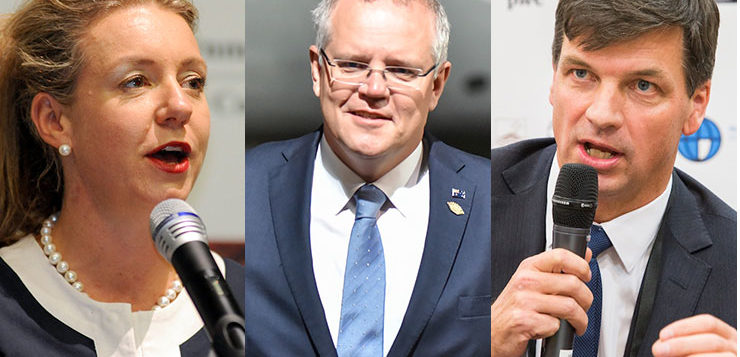DON’T MISS ANYTHING! ONE CLICK TO GET NEW MATILDA DELIVERED DIRECT TO YOUR INBOX, FREE!
Nationals Deputy Leader Bridget McKenzie has got herself into hot water by systematically rorting sports grants. It’s part of a pattern of corruption that dogs the Morrison government, writes Ben Eltham.
Bridget McKenzie a good example of the modern National. She can’t be said to represent any clear regional constituency, or even an industry lobby. Although she grew up in north-eastern Victoria and has moved her office to Wangaratta, she lives mostly in Melbourne.
At 50, it might be more accurate to describe her as one of the ‘Young Nationals’.
Yet McKenzie has reached the deputy leadership. She has a coveted spot in the cabinet of the government of Australia. She has done it as a factional operator, rather like a politician of the major parties. McKenzie likes shooting and is good for a photo opportunity, but she brings no obvious policy credentials to the job.
McKenzie now finds herself in a spot of bother. The Minister for Agriculture is caught up in one of the most glaring examples of political corruption in the federal sphere in decades: the organised rorting of federal sports grants before the 2019 election.
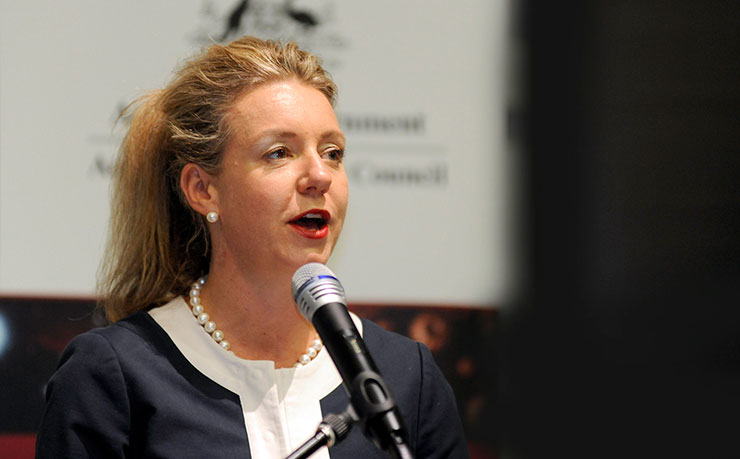
The “sports rorts”, as they have inevitably been termed, exploded into public view early in the new year, after the Australian National Audit Office issued a devastating report on the biased results of a federal sports grants program.
The story is as old as politics, with some contemporary twists. As the federal sports minister in 2018-2019, McKenzie oversaw roughly $100 million in grants to community sporting organisations in the last term of Parliament.
We now know she abused that position, to target funding to marginal seats the Coalition wanted to win in 2019.
Being the federal sports minister is one of the best jobs in politics. You can turn up to pretty much any sporting fixture in the land. You get to hobnob with sports stars, whose matchless community appeal can be harvested for favourable media opportunities.
You also get to hand out money to hard-pressed sporting clubs, who will naturally be very grateful.
But in the lead-up to the 2019 federal election, with the Coalition trailing Labor in the polls, merely handing out money was not enough for McKenzie and her government. A new prime minister with an eye for marketing was in charge. And a new electoral strategy was formulated: presenting Morrison as a knockabout bloke, a daggy dad, the kind of everyday suburbanite you could have a beer with.
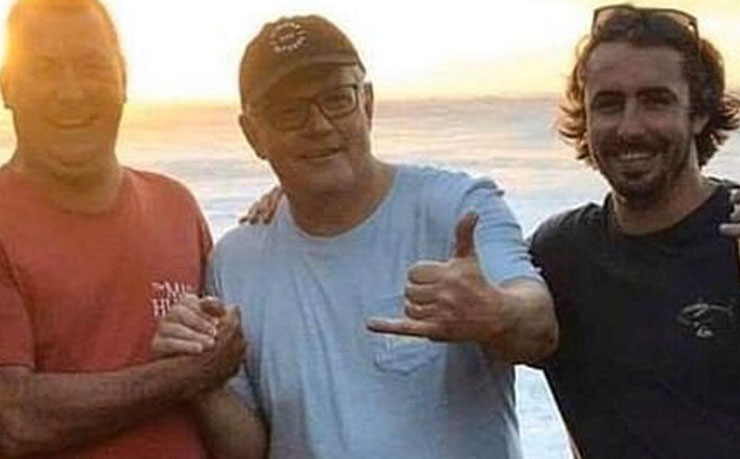
Sports grants were integral to Scott Morrison’s media strategy: they provided the TV news opportunities to burnish Morrison’s everyday bloke facade. Taking Sport Australia’s recommendations would not be enough. McKenzie needed to decide who got the grants herself. The result would be priceless media opportunities for Liberal MPs and candidates, especially in battleground electorates.
So McKenzie was instructed to game the system. After Sport Australia went through the process of calling for applications, ranking them and recommending successful recipients, McKenzie took those recommendations … and threw them in the bin.
Instead, a completely separate list was drawn up in her office – a list that had very little to do with the aims of the funding program, or the formal recommendations of Sport Australia, and everything to do with the Coalition’s political priorities. McKenzie’s office then simply instructed Sport Australia to do what it was told.
Funding duly flowed to sports clubs up and down the land – most of which were in marginal seats crucial to the Coalition’s re-election plans.
A ritzy rowing club in Tony Abbott’s electorate got half a million. A shooting club of which McKenzie herself is a member received $36,000 (McKenzie forgot to declare her membership). A soccer club in Morrison’s own electorate boasted about receiving money before the grants were even announced. A Brisbane football club got $150,000 for a project that was already funded. A rugby club with no female players got funding for female change rooms.
More than $1 million in funding was rushed to shooting clubs under McKenzie’s tenure.
What was wrong with this, you might ask? Don’t politicians always game the rules to suit their political interests?
Well, no. There are rules and laws in place that require decisions to be made fairly, legally, and using due process, as the Auditor-General points out. In some jurisdictions, including in New South Wales, putting party political interests ahead of the public interest counts as official misconduct – a serious crime.
McKenzie has demonstrably broken Scott Morrison’s Statement of Ministerial Standards, admittedly one of the more meaningless documents in Commonwealth public administration.
It’s worth reading the Standards carefully, if only to realise just how often the rules are broken. As detailed by the Auditor-General, McKenzie’s conduct in the sports rorts affair breaches the spirit and letter of the code. By my count, McKenzie has breached at least three of the Standards.
On page 3, for instance, the Statement of Ministerial Standards sets out its core principles, which includes these paragraphs:
- Ministers must ensure that they act with integrity – that is, through the lawful and disinterested exercise of the statutory and other powers available to their office, appropriate use of the resources available to their office for public purposes, in a manner which is appropriate to the responsibilities of the Minister.
- Ministers must observe fairness in making official decisions – that is, to act honestly and reasonably, with consultation as appropriate to the matter at issue, taking proper account of the merits of the matter, and giving due consideration to the rights and interests of the persons involved, and the interests of Australia.
The Standards also state under the “Fairness” heading that “ministers must be able demonstrate that they have taken all reasonable steps to observe relevant standards of procedural fairness and good decision making” and that “Ministers are required to ensure that official decisions made by them as Ministers are unaffected by bias.”
It’s hard to see how McKenzie can possibly be said to have demonstrated “procedural fairness” or ensured her decisions were “unaffected by bias.”
Indeed, the opposite has happened: McKenzie has systematically rorted the system.
The Audit report pulls no punches. It establishes that McKenzie acted to subvert the proper process to give out funding in a biased manner, for the private political advantage of the Liberal and National Parties.
To quote the report, “Sport Australia assessed the applications against the published assessment criteria. The Minister’s Office conducted a parallel assessment process using other considerations.” The report says that there appears to have been “no legal authority” for McKenzie to make these funding decisions.
Is this corruption? Yes, it is.
Putting party political interest before the public interest is a type of misconduct. The New South Wales legislation, the strongest in the country, is a good template. The ICAC Act 1998 defines misconduct as “the dishonest or partial exercise of… official functions” as well as conduct that involves “a breach of public trust”.
If Bridget McKenzie was a minister in New South Wales, she might be in serious legal trouble. But McKenzie is a minister in the Commonwealth Government. At worst, she faces being demoted, but only if the Morrison Government comes to believe that this scandal is not simply going to blow over.
Don’t take my word for it. Eminent retired judge Stephen Charles QC was asked last weekwhether McKenzie’s conduct was corrupt on ABC radio. “Yes,” he replied.
“Tilting the electoral playing field in this way, if that was what was intended and done, in my view is clearly corruption.”
As Charles pointed out, “in the case of the Labor minister who some twenty years before did the same thing, she resigned.”
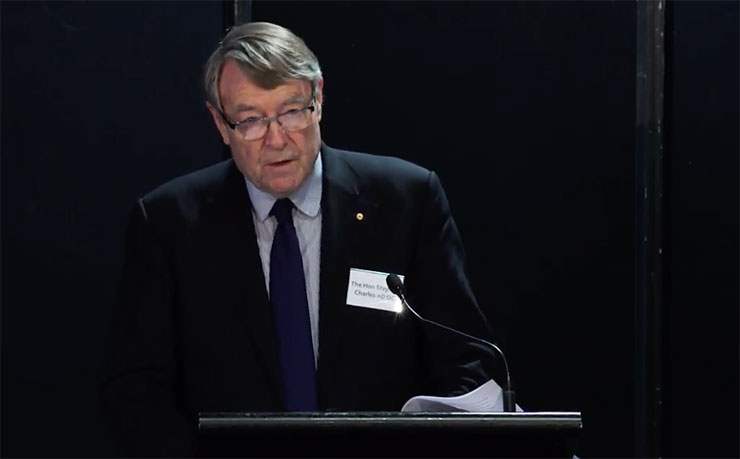
Charles was talking about Ros Kelly, the sports minister in Paul Keating’s government who resigned in 1994 after an almost identical example of rorting sports grants. That time too, the Auditor-General had questioned the procedure behind handing out grants. Kelly, it emerged, had used a large whiteboard to come up with her decisions; they just happened to favour a swathe of Labor-held marginal seats.
The fact that 25 years ago a Labor minister resigned over a similar scandal tells us a couple of things. Firstly, that there is a precedent, which McKenzie should follow. Secondly, that there was once a time when ministers resigned for doing the wrong thing. That hasn’t been the case in the federal system for decades, now. Ever since the late 1990s, when John Howard decided that sacking ministers was an unnecessary benefit to the opposition, both Coalition and Labor governments have been loathe to hold ministers accountable for integrity scandals.
The result has been a steady erosion in Commonwealth ethics of governance. Labor under Kevin Rudd and Julia Gillard was not exactly saintly (although at least Craig Thomson wasn’t a minister). But since the Coalition took office in 2013, standards have plummeted. Scandals that would once have destroyed political careers now see those responsible sail blithely on, untrammeled by any sanction, or even much opprobrium.
A good example is the current Energy Minister, Angus Taylor. Taylor’s various controversies are long and complex, but at least two grave breaches of the Ministerial standards are on the public record.
In 2017, Angus Taylor lobbied the then Environment Minister Josh Frydenberg to remove environmental protections for a sensitive area of grasslands on a farm owned by Taylor’s brother, Richard – a clear conflict of interest.
Taylor and his office are also under a formal police investigation about whether he or a staffer forged documents claiming exorbitant travel spending by Sydney Lord-Mayor Clover Moore – travel that never happened.
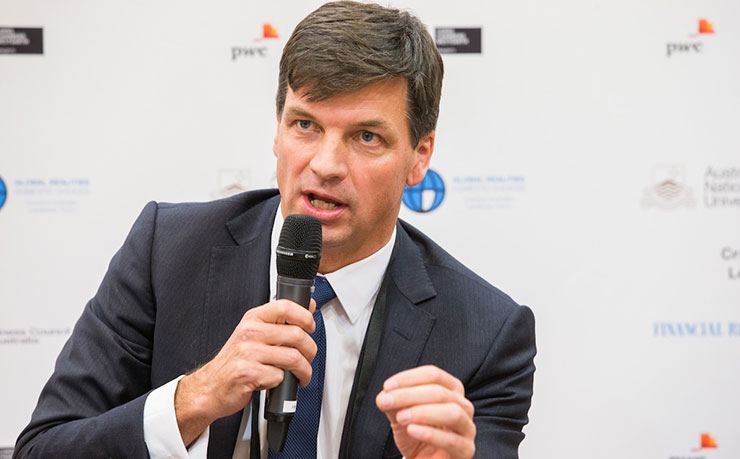
If the Ministerial standards were worth a penny, Taylor would have been sacked for the Jam Lands intervention, and stood down pending the police investigation over Clover Moore’s forged travel spending. But he won’t be, because Scott Morrison values political appearances more than he values ministerial integrity.
Dodgy ministers like Angus Taylor and Bridget McKenzie can survive in the current system because the Commonwealth has extremely weak anti-corruption safeguards. Unlike many of the states, the federal government has no proper anti-corruption agency.
There is no body with the legal remit and the resources to investigate ministers or senior public servants. The Australian Federal Police could theoretically do the job, but in practice it doesn’t want to; it is hopelessly politicised.
All of this has occurred while Attorney-General Christian Porter is supposedly working on a new federal anti-corruption body. But more than a year after announcing he was looking into it, nothing has happened.
That’s because the Morrison government doesn’t want an anti-corruption body. If one existed, it would be a very busy agency.
Scott Morrison, by the way, is standing by Bridget McKenzie for now (although he has launched an investigation by the head of the Department of Prime Minister and Cabinet, Phil Gaetjens). The Senator herself maintains she has done nothing wrong.
Indeed, in his speech at the National Press Club this week, Morrison doubled down, repeating his claim that every project given funding was eligible (some were not eligible, according to the Audit report) and even suggesting that more funding might be found for worthy sports projects that had missed out on funding.
After his Press Club speech this week, the Guardian‘s Sarah Martin asked Morrison whether he thought it was wrong, “as a matter of principle”, for public funds to be spent on party political pork-barrelling. Morrison’s reply was breathtaking.
“That is not what the government has done,” the Prime Minister answered (it is exactly what the government has done).
“I am asking as a matter of principle, if you accept that,” Martin asked again.
“It is — of course. That is like, do I believe the sun should rise tomorrow? Yes I do, and it will,” he said.
That’s where we’re at with Scott Morrison in 2020. As we’ve seen throughout his career, when faced with uncomfortable questions, Morrison lies, and lies compulsively. Bridget McKenzie might be the minister with the most immediate political problems from this scandal. But standing behind her in this episode of open and unapologetic corruption is the Prime Minister himself.
BE PART OF THE SOLUTION: WE NEED YOUR HELP TO KEEP NEW MATILDA ALIVE. Click here to chip in through Paypal, or you can click here to access our GoFundMe campaign.
Donate To New Matilda
New Matilda is a small, independent media outlet. We survive through reader contributions, and never losing a lawsuit. If you got something from this article, giving something back helps us to continue speaking truth to power. Every little bit counts.

